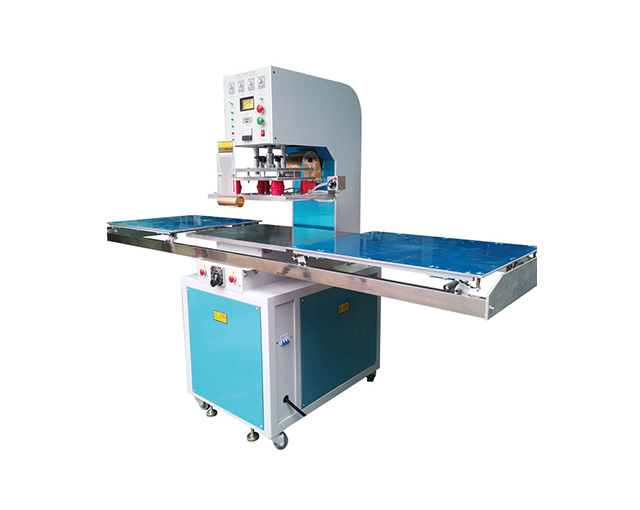Time:2025-08-14 Views:1 source:News

The fabric texture created by an embossing machine is a key element in textile manufacturing, adding tactile and visual depth to materials through controlled heat and pressure. Embossing machines transform flat fabrics into textured surfaces by pressing them between engraved rollers or plates, creating patterns that range from subtle grains to bold, three-dimensional designs. This process is widely used in fashion, home textiles, and industrial fabrics, enhancing both aesthetics and functionality.
The texture produced by an embossing machine depends on several factors, including the fabric type, roller design, temperature, pressure, and dwell time. Natural fibers like cotton and wool respond well to embossing, as their fibers are more malleable under heat, retaining textures such as waffle, corduroy, or linen-like weaves. Synthetic fabrics, such as polyester and nylon, require precise temperature control to avoid melting while achieving crisp textures—often resulting in smooth, uniform patterns like satin ribs or geometric ridges. Blended fabrics combine the best of both, with cotton-polyester blends offering durable textures that resist wrinkling.
Embossing machines use two primary types of rollers: engraved steel rollers for deep, intricate textures and rubber rollers for softer, more flexible patterns. The steel rollers are etched with designs that transfer to the fabric when pressed, while rubber rollers provide a yielding surface that ensures even pressure distribution, critical for maintaining consistent texture across large fabric rolls. For example, a waffle texture is created using a grid-patterned steel roller paired with a rubber roller, pressing the fabric to form raised squares separated by indentations—a texture favored in towels and loungewear for its absorbency and softness.
Temperature and pressure settings are tailored to the fabric’s thickness and fiber content. Heavy fabrics like denim require higher pressure (up to 500 psi) and moderate heat (120–150°C) to create deep, long-lasting textures such as honeycomb or herringbone. Lightweight fabrics like silk need lower pressure (100–200 psi) and cooler temperatures (80–100°C) to preserve their delicate structure while adding subtle textures like pinstripes or floral veins. The dwell time—how long the fabric remains under pressure—also affects texture depth: longer dwell times result in more pronounced patterns, ideal for decorative fabrics, while shorter times create faint textures suitable for undergarments.
Functionally, embossed textures enhance fabric performance. Raised patterns can improve breathability by creating air pockets between the fabric and skin, making embossed cotton ideal for summer clothing. Textured surfaces also increase friction, making fabrics like embossed nylon suitable for grip-enhancing applications such as upholstery or sportswear. Additionally, embossing can hide minor flaws in the base fabric, reducing waste and improving overall quality.
the fabric texture produced by an embossing machine is a versatile tool in textile design, blending artistry and engineering. By adjusting materials, roller designs, and process parameters, manufacturers can create textures that elevate fabric aesthetics, improve functionality, and meet the diverse needs of consumers and industries.
Read recommendations:
Automatic high frequency sliding table welding machine
Hydraulic Die cutting machine press cutter
Environment - friendly fully automatic medical bag production line
Complete control over products allows us to ensure our customers receive the best qualityprices and service. We take great pride in everything that we do in our factory.
